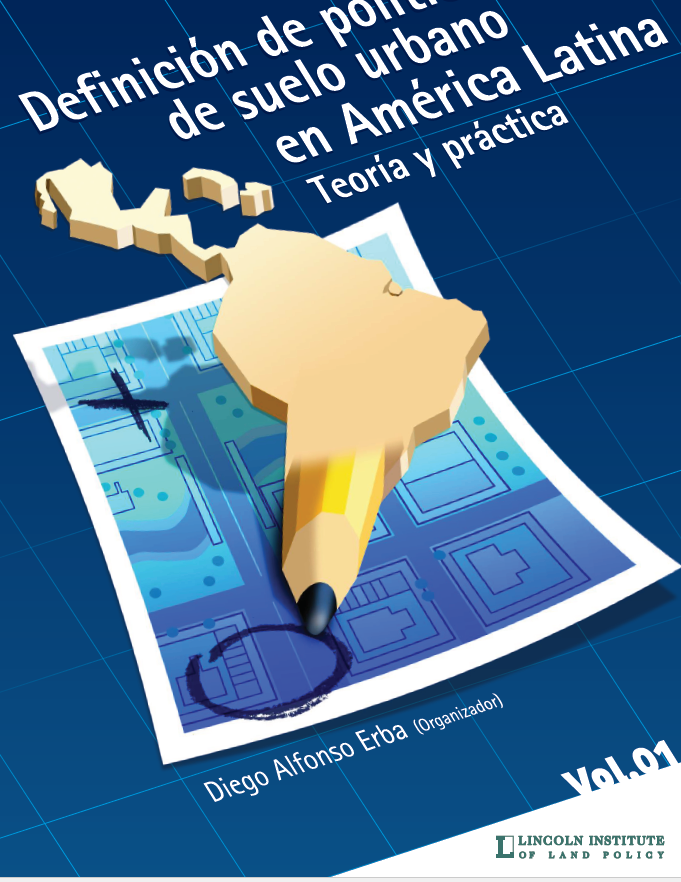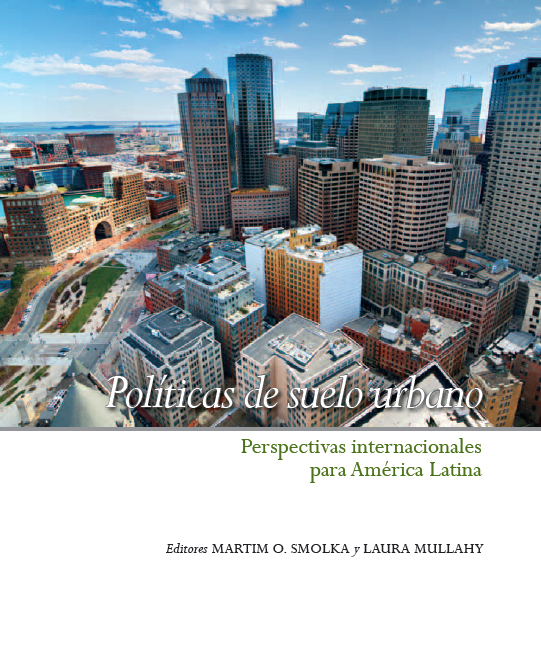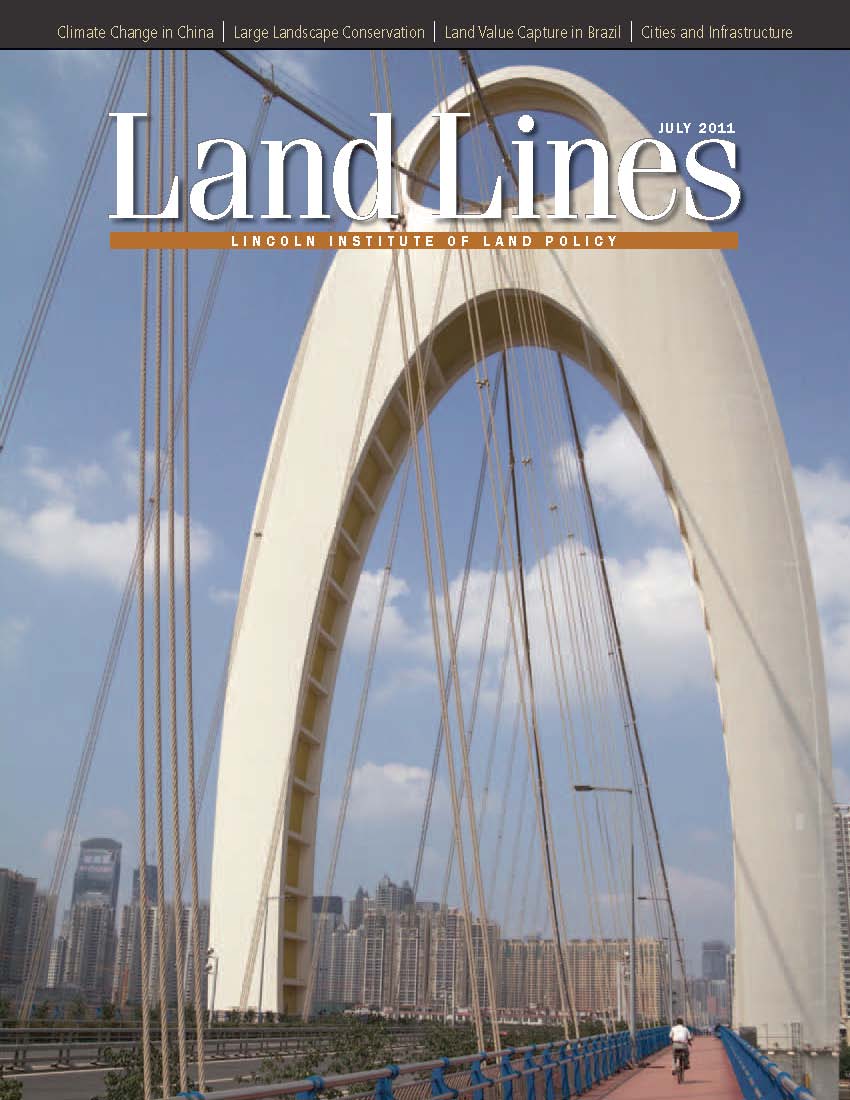Focal point
Location
Finding answers in land
The Lincoln Institute of Land Policy is an independent, nonpartisan organization whose mission is to help solve global economic, social, and environmental challenges to improve the quality of life through creative approaches to the use, taxation, and stewardship of land. As a private operating foundation whose origins date to 1946, the Lincoln Institute seeks to inform public dialogue and decisions about land policy through research, training, and effective communication. By bringing together scholars, practitioners, public officials, policy makers, journalists, and involved citizens, the Lincoln Institute integrates theory and practice and provides a forum for multidisciplinary perspectives on public policy concerning land, both in the United States and internationally.
The Lincoln Institute's work is organized into three thematic areas:
A Brief History
The Lincoln Institute of Land Policy traces its origins to John C. Lincoln, a Cleveland industrialist and investor who in 1946 established the Lincoln Foundation in Phoenix, Arizona. He was intrigued by the writings of Henry George, as expressed in the book Progress and Poverty(1879), in particular George's ideas about land ownership and taxation. Lincoln created the Foundation to support other institutions in the teaching, research, and publication of information about George's work.
From the late 1940s through the early 1970s, the Lincoln Foundation sponsored a variety of university-based education and research programs on theoretical and applied economics and taxation. In 1966 the Foundation established the John C. Lincoln Institute at the University of Hartford in Connecticut, and in 1968 it supported the creation of the Land Reform Training Institute in Taiwan (renamed the International Center for Land Policy Studies and Training in 1998).
The Lincoln Institute of Land Policy was established as a school in 1974 and became the Foundation's primary grant recipient to develop multidisciplinary education, research, and publications programs. The Institute focused on property valuation and taxation policy, urban planning and development, land economics, and property rights. To expand its work internationally, the Institute established the Program on Latin America and the Caribbean in 1993 and the Program on the People's Republic of China in 2003.
In 2006 the Lincoln Foundation and the Lincoln Institute of Land Policy merged to become a private operating foundation. The organization continues its focus on research, publications, and training, while seeking a more active role in the conversations that shape public policy decisions.
Members:
Resources
Displaying 6 - 10 of 13Definición de políticas de suelo urbano en América Latina: teoría y práctica
Definir políticas de suelo es un gran desafío para los administradores urbanos de América Latina. Implica identificar e implementar los instrumentos más apropiados para financiar mejor a las ciudades, disminuir la informalidad, distribuir más equitativamente los servicios públicos y las cargas, y elegir las geotecnologías más apropiadas. Si bien existen numerosas iniciativas en la región, aún se evidencia cierto desconocimiento en lo que se refiere a conceptos y virtudes de todos los instrumentos.
Políticas de suelo urbano. Perspectivas internacionales para América Latina
Políticas de suelo urbano contiene 53 artículos seleccionados de Land Lines, la revista trimestral que reporta sobre los programas educativos, investigaciones y publicaciones del Instituto Lincoln. A partir de julio de 2011, los números completos han sido traducidos al español y, junto con todos los números de Land Lines en inglés, están disponibles para descarga gratuita en el sitio web del Instituto Lincoln, en www.lincolninst.edu/pubs.
Gestão Territorial Urbana no Brasil e os Instrumentos Urbanísticos para a captura da mais-valia da terra
Aula Gestão Territorial Urbana no Brasil e os Instrumentos Urbanísticos para a captura da mais-valia da terra Daniel Todtmann Montandon CURSO GESTÃO DA VALORIZAÇÃO IMOBILIÁRIA: Contribuição de Melhoria, Reajuste de Terrenos e Redesenvolvimento Belo Horizonte, 24 a 26 de outubro de 2012 Programa para América Latina y el Caribe Lincoln Institute of Land Policy
A new look at value capture in Latin America
Many countries in Latin America have passed legislation that supports value capture policies as a way to recoup some or all the unearned increase in private land values resulting from public regulations or investments. Thus far, however, only a few jurisdictions in certain countries have applied this potentially powerful financing tool systematically and successfully. In 2011 and 2012 the Lincoln Institute of Land Policy surveyed public officials and academics in the region to discover why value capture has not been used more often. Read more.
Urban Development and Climate Change in China’s Pearl River Delta
Cities are both contributors to and victims of global climate change. Delta cities, in particular, have long been recognized as being extremely vulnerable because they are located where the stresses on natural systems coincide with intense human activity.






